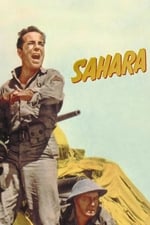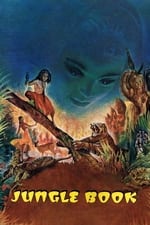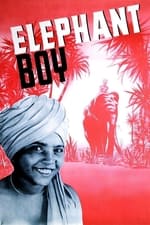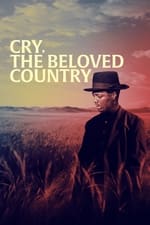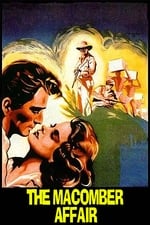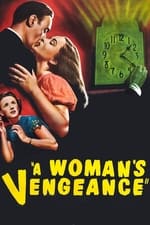Informations personnelles
Célèbre pour Réalisation
Apparitions connues 18
Genre Homme
Date de naissance 3 juin 1895
Date de décès 13 octobre 1961 (66 ans)
Lieu de naissance Pusztaturpaszto, Túrkeve, Austria-Hungary [now Hungary]
Alias
- Zoltán Korda
Score de contenu
100
Superbe ! Cette fiche semble complète !
Connectez-vous afin de
signaler un problème.
Biographie
From Wikipedia, the free encyclopedia
Zoltan Korda (3 June 1895 – 13 October 1961) was a Hungarian-born motion picture screenwriter, director and producer.
Born Zoltán Kellner, Kellner Zoltán in Hungarian name order, of Jewish heritage in Pusztatúrpásztó, Túrkeve in Hungary (Austria-Hungary), he was the middle brother of filmmakers Alexander and Vincent Korda.
Zoltan Korda went to work with his brother Alexander in their native Hungary and in the United Kingdom for his London Films production company. Initially Zoltan Korda functioned as a camera operator then for a time worked in film editing and as a screenwriter. In 1918 and 1920 in Hungary, he directed two silent film shorts and a feature-length silent film in Germany in 1927. In London, he made his English-language directorial debut with the sound drama Men of Tomorrow (1932) then gained wide respect for the adventure film Sanders of the River (1935), starring Paul Robeson and Leslie Banks. The film proved a significant commercial and critical success, giving Korda the first of his four nominations for "Best Film" at the Venice Film Festival. Korda and Robert Flaherty won the Venice festival's "Best Director" award for Elephant Boy (1937).
A former cavalry officer, Korda made a number of military action/adventure films, many of which were filmed in Africa or India. As someone with a social conscience, his film projects often reflected that perspective when dealing with the indigenous peoples of the British Empire. Of his directorial efforts, 1939's The Four Feathers starring Sir Ralph Richardson is considered his greatest cinematic accomplishment. Of lasting significance, the film was nominated for the Palme d'Or at the 1939 Cannes Film Festival and was presented again by the Festival committee in 2002 in retrospective.
In 1940, Zoltan Korda joined brother Alexander in Hollywood. Working through United Artists, he served as executive producer of The Thief of Bagdad. Zoltan Korda spent the rest of his life in southern California, making another seven films including the acclaimed 1943 World War II drama, Sahara (1943), for which he wrote the screenplay and which starred Humphrey Bogart, and A Woman's Vengeance (1947) with Charles Boyer and Jessica Tandy.
Korda was married to Joan Gardner (1930 - 13 October 1961) till his death and had a son, David. The entire family's colorful history is the subject of a book by Zoltan's nephew Michael Korda, Charmed Lives.
Poor health, brought on years earlier from a battle with tuberculosis, forced Zoltan Korda's retirement in 1955. He died in 1961 in Hollywood after a lengthy illness and was interred there in the Hollywood Memorial Park Cemetery.
Description above from the Wikipedia article Zoltan Korda, licensed under CC-BY-SA, full list of contributors on Wikipedia.
From Wikipedia, the free encyclopedia
Zoltan Korda (3 June 1895 – 13 October 1961) was a Hungarian-born motion picture screenwriter, director and producer.
Born Zoltán Kellner, Kellner Zoltán in Hungarian name order, of Jewish heritage in Pusztatúrpásztó, Túrkeve in Hungary (Austria-Hungary), he was the middle brother of filmmakers Alexander and Vincent Korda.
Zoltan Korda went to work with his brother Alexander in their native Hungary and in the United Kingdom for his London Films production company. Initially Zoltan Korda functioned as a camera operator then for a time worked in film editing and as a screenwriter. In 1918 and 1920 in Hungary, he directed two silent film shorts and a feature-length silent film in Germany in 1927. In London, he made his English-language directorial debut with the sound drama Men of Tomorrow (1932) then gained wide respect for the adventure film Sanders of the River (1935), starring Paul Robeson and Leslie Banks. The film proved a significant commercial and critical success, giving Korda the first of his four nominations for "Best Film" at the Venice Film Festival. Korda and Robert Flaherty won the Venice festival's "Best Director" award for Elephant Boy (1937).
A former cavalry officer, Korda made a number of military action/adventure films, many of which were filmed in Africa or India. As someone with a social conscience, his film projects often reflected that perspective when dealing with the indigenous peoples of the British Empire. Of his directorial efforts, 1939's The Four Feathers starring Sir Ralph Richardson is considered his greatest cinematic accomplishment. Of lasting significance, the film was nominated for the Palme d'Or at the 1939 Cannes Film Festival and was presented again by the Festival committee in 2002 in retrospective.
In 1940, Zoltan Korda joined brother Alexander in Hollywood. Working through United Artists, he served as executive producer of The Thief of Bagdad. Zoltan Korda spent the rest of his life in southern California, making another seven films including the acclaimed 1943 World War II drama, Sahara (1943), for which he wrote the screenplay and which starred Humphrey Bogart, and A Woman's Vengeance (1947) with Charles Boyer and Jessica Tandy.
Korda was married to Joan Gardner (1930 - 13 October 1961) till his death and had a son, David. The entire family's colorful history is the subject of a book by Zoltan's nephew Michael Korda, Charmed Lives.
Poor health, brought on years earlier from a battle with tuberculosis, forced Zoltan Korda's retirement in 1955. He died in 1961 in Hollywood after a lengthy illness and was interred there in the Hollywood Memorial Park Cemetery.
Description above from the Wikipedia article Zoltan Korda, licensed under CC-BY-SA, full list of contributors on Wikipedia.
Réalisation
|
||||||
|
||||||
|
||||||
|
||||||
|
||||||
|
||||||
|
||||||
|
||||||
|
||||||
|
||||||
|
||||||
|
||||||
|
||||||
|
Production
|
|||
|
|||
|
|||
|
|||
|
|||
|
Écriture
|
|||
|

